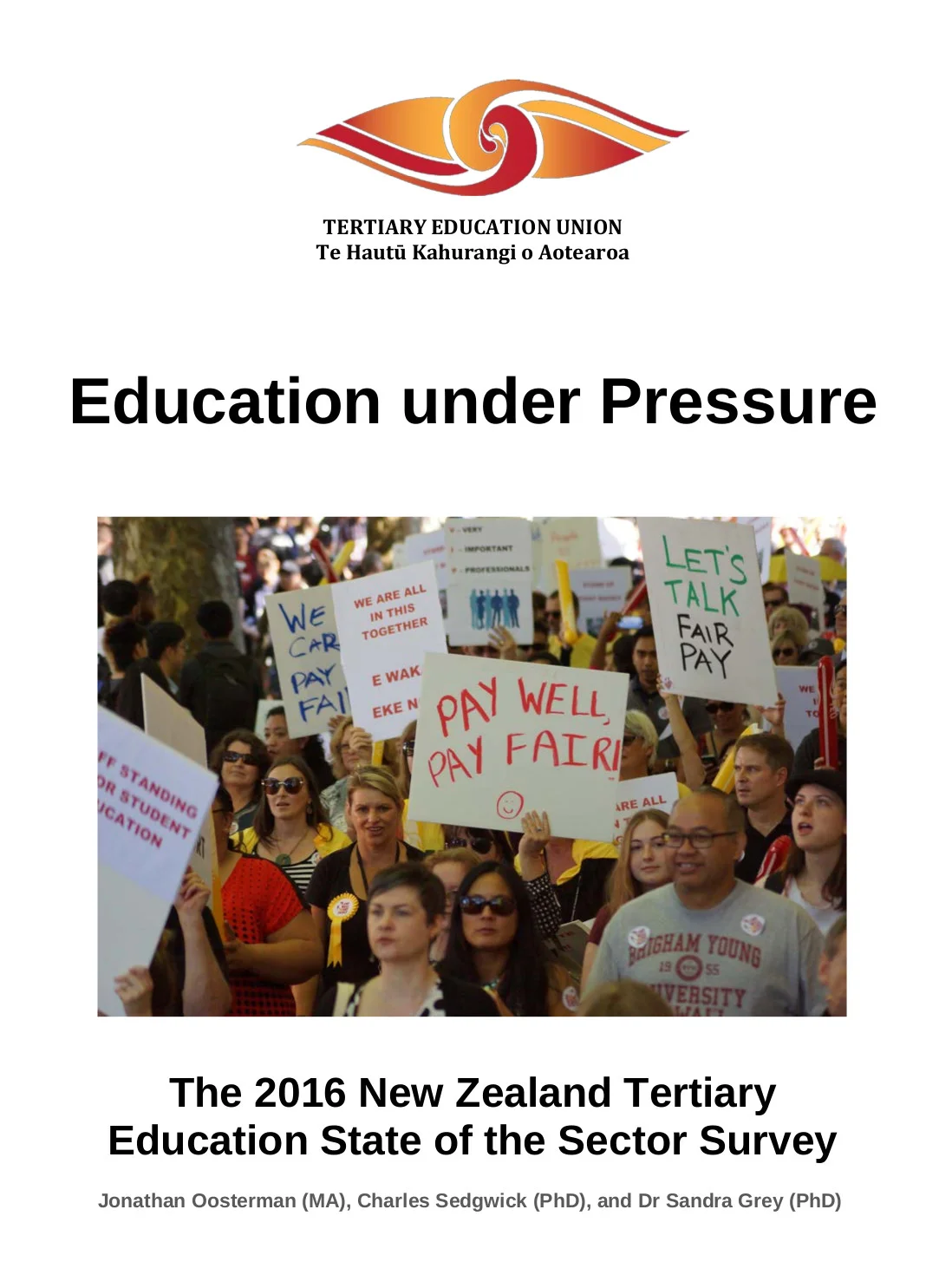Increased pressure on staff to change grades: Tertiary Education Union
Staff at tertiary education institutions are experiencing higher levels of stress, unsustainable workloads and are feeling more alienated from their jobs compared to a decade ago, according to a report published recently by the Tertiary Education Union.
Titled Education Under Pressure, the report adds "increased pressure on staff to change grades, dedicate less time to teaching and change admission rules, all of which lead to lower education outcomes for students".
Findings in the TEU report show that in the last ten years:
- The pressure to pass a higher percentage of students to meet government targets has become worse for 63 percent of over 1,000 survey respondents
- The pressure to dedicate less time to teaching has become worse for 55 per cent of respondents
- Support for improving staff well-being has become worse for 70 percent of respondents and one-third of staff who took part in the survey say they no longer feel able to support student well-being
- Reported stress levels have increased to seven out of 10, where 10 represents extreme stress – significantly higher than the average New Zealander who has a stress level of 5.5 according to recent research.



